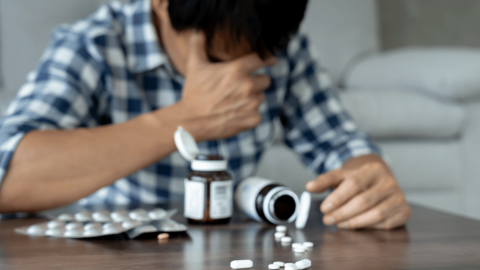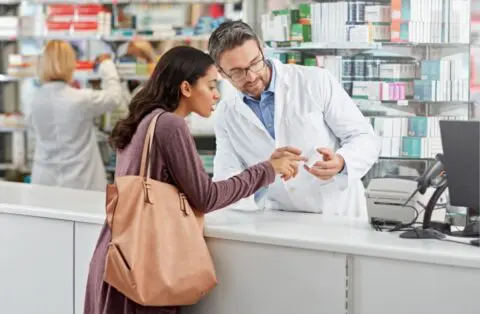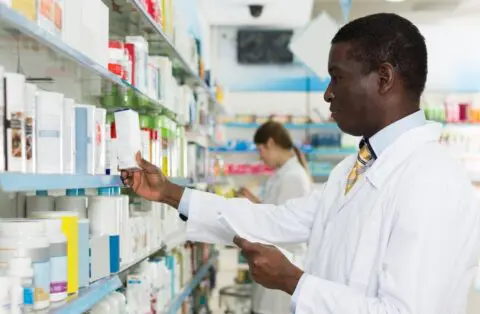When someone close to you is struggling with opioid use, every moment counts—especially if an overdose might be at play. Knowing the warning signs and being ready to act isn’t just about preparedness; it’s about being that steady, compassionate presence they need in a critical moment. Recognizing opioid overdose symptoms is like learning a new language—a language of care that can keep someone breathing, keep them safe, and guide them toward healing.
This article is here to empower you. We’ll break down what to look for, how to respond, and ways to support your loved one, even beyond emergencies.
Let’s dive in so you can feel equipped, calm, and ready to make a difference when it matters most.
What Are Common Opioid Overdose Symptoms?
Opioids affect the central nervous system, slowing down breathing, heart rate, and other vital functions.
Here are some symptoms to look out for if you suspect an overdose.
Key Opioid Overdose Symptoms
- Slow, Shallow, or No Breathing: Breathing may become dangerously slow or even stop completely.
- Unconsciousness or Unresponsiveness: The person may be difficult to wake up or completely unresponsive.
- Pinpoint Pupils: Pupils may become extremely small, like pinpoints.
- Limp Body: Muscles become weak, and the body may feel limp or floppy.
- Blue or Purple Lips and Fingertips: Due to lack of oxygen, lips, fingertips, and face may start to look blue or purple.
- Vomiting or Gurgling Sounds: You may hear choking, snoring, or gurgling noises, signaling blocked airways.
Each symptom points to severe effects on breathing and oxygen levels, making immediate action crucial.
What to Do if You Suspect an Opioid Overdose
If you think someone is experiencing an opioid overdose, act quickly. Here’s a step-by-step guide to handling the situation.
Step-by-Step Response for an Opioid Overdose
- Call Emergency Services (911): Always get professional help immediately. Time is critical.
- Administer Naloxone (Narcan): If available, use naloxone, a medication that can reverse the effects of an overdose temporarily.
- Try to Keep the Person Awake: If they are semi-conscious, try to keep them talking and awake until help arrives.
- Perform Rescue Breathing: If they aren’t breathing, provide rescue breathing or CPR if trained.
- Stay with the Person: Keep an eye on them and stay close, even if they start to recover after naloxone.
What Is Naloxone, and How Does It Help?
Naloxone is a lifesaving medication that can reverse the effects of an opioid overdose by blocking opioid receptors in the brain. Many states allow you to get it without a prescription. For friends and family of individuals at risk, having naloxone on hand could be the difference between life and death.
Long-Term Care and Support for a Loved One
How Can You Help Someone Recover from Opioid Dependence?
Helping a loved one recover from opioid dependence is a journey. It can be challenging, but with compassion and knowledge, you can play a supportive role in their recovery.
- Encourage Treatment Options: There are effective treatments, like medication-assisted therapy (MAT) and counseling, that provide long-term support for opioid recovery.
- Offer Emotional Support: Recovery can be an emotional process. Encourage open conversations and avoid judgment.
- Help Them Build Healthy Habits: Physical exercise, balanced nutrition, and healthy routines can aid recovery.
- Stay Educated on Harm Reduction: Harm reduction strategies, like safe-use education and mental health support, help reduce risks if relapse occurs.
How to Find Help and Resources
Consider reaching out to organizations that specialize in opioid recovery and support. Many offer accessible or affordable options for counseling, opioid addiction treatment, and support groups, helping you and your loved one connect with a network of people who care.
| Resource | Type | Description |
| SAMHSA | 24/7 Helpline | Free, confidential assistance for treatment referrals. |
| Local Support Groups | In-person/online | Encouragement and shared experiences for individuals in recovery. |
| QuickMD | Online Counseling and Support | Telemedicine options for mental health and addiction recovery. |
Frequently Asked Questions
What are the first signs of an opioid overdose?
The first signs of an opioid overdose include shallow breathing, unresponsiveness, and pinpoint pupils. If you notice these, it’s essential to seek help immediately.
Can opioid overdoses be prevented?
Yes, awareness and prevention strategies can reduce the risk. For individuals using opioids, understanding safe-use practices, having naloxone nearby, and seeking medical support are key preventive measures.
How does naloxone work in an overdose situation?
Naloxone quickly reverses the effects of opioids, temporarily restoring breathing and consciousness. It’s safe, effective, and widely available, often without a prescription.
Take the Next Step for Your Loved One’s Health
Caring for someone with opioid use challenges may feel overwhelming, but knowing what to do can make a difference. QuickMD offers compassionate, professional telemedicine support to help those struggling with addiction.
With same-day online consultations and access to resources for addiction recovery, QuickMD is here to make healthcare accessible from the comfort of your home.
Learn more about addiction support and opioid recovery options with QuickMD.




